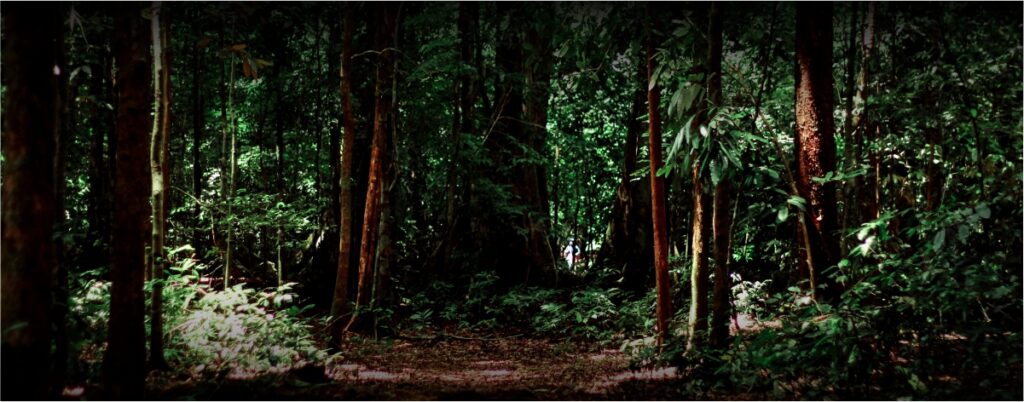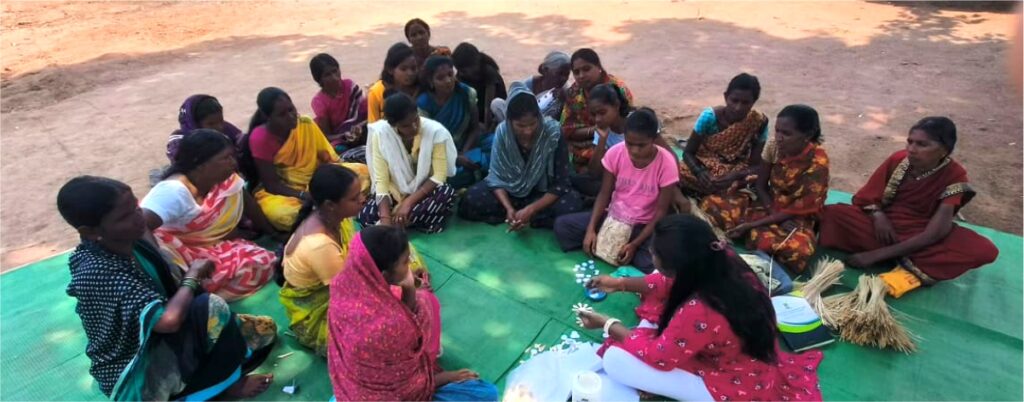From the CPO's Desk
Community Engagement Through Eco-Tourism Initiatives in Gadchiroli Region

“Leave only footprints, take only memories” captures the essence of Eco-Tourism. This approach to Responsible Tourism emphasizes harmonizing with nature, deriving joy from its tranquillity and beauty, without disrupting the environment or seeking unnecessary luxuries. Eco-Tourism goes beyond mere recreation; it focuses on educating visitors about the natural and cultural environment, serving as a tool for conservation, and offering sustainable economic benefits to local communities. By fostering an appreciation for the natural world, Eco-Tourism encourages responsible tourists to preserve the sanctity of their surroundings. At the same time, it aims to create sustainable income opportunities for forest-dependent communities, ensuring that tourism contributes to the well-being of both nature and the people who live closest to it. This balance of enjoyment and conservation makes Eco-Tourism a powerful instrument for protecting the environment while supporting local livelihoods.
Having said that, there exists a very thin line between mass / commercial tourism and Eco-Tourism; if Eco-Tourism projects are not planned and managed properly, it can inflict damage to natural environment and to the communities living in close proximity . Though India is not entirely new to the concept of Eco-Tourism, it’s not too old either. It has been observed that despite having serious potential and political will to develop the idea of Eco-Tourism in a natural resource and bio-diversity rich country as India, it was not until late 90s and early in to the new millennium that the concept got momentum. States like Kerala, Sikkim, Madhya Pradesh and parts of West Bengal can be termed as pioneers of the concept of Eco-Tourism in India. Lately, Odisha, Uttarakhand and Maharashtra (especially the western region) and few others have taken up significant steps in this direction.
Talking about Maharashtra, like the western part, the eastern Vidarbha region, with its vast stretches of forests having rich floral and faunal diversity, forest dependent primitive tribal groups, natural water bodies, tribal culture and art forms and places of religious importance presents tremendous potential for Eco-Tourism development. The nodal body for Eco-Tourism development in the state, Maharashtra Eco-Tourism Development Board (MEDB) was established in 2015, with a mandate to boost Eco-Tourism in the state and create employment opportunities for local youths, has been recently reconstituted. With a clear mandate in mind, concerned stakeholders such as department of Forest, Tourism, Tribal Development and District Administration may come forward, drawing reference from successful ET Models from across the country to formulate unique Eco-tourism Development Framework for Gadchiroli region.
Some of the factors, comprehensive and well-aligned with sustainable development principles, must be considered while we foster Eco-Tourism in Gadchiroli.
Here’s a closer look at each initiative with additional insights :
1. Local Participation and Ownership →
Forming Eco-Tourism Committees within the community to involve members in decision-making. Conducting regular meetings to gather feedback and adjust plans as needed.
2. Offering Well Packaged Eco-Tours →
Gadchiroli has immense potential when it comes to designing well packaged eco-tours such as temple tourism, river tourism, jungle stays and artisan villages etc.
3. Capacity Building and Skill Development: →
Gondwana University’s Model Degree College has a uniquely designed course curriculum being offered in-form of certificate, diploma, research-based degree courses which has the potential to develop a cadre of skilled youth in Eco-Tourism sector. There can be multiple certificate courses that can be introduced in hospitality management and nature education. Partnering with NGOs or government programs can help to provide training in Eco-Tourism related ancillary skills along with workshops on sustainable practices, customer service, and safety protocols.
4. Promotion of Indigenous Culture and Crafts →
Gadchiroli’s remote charm, rich cultural tapestry and unique art-forms invite travellers to discover its serene landscapes and ancient traditions. Gadchiroli is known for its unique art-forms such as bamboo craft, rock dokra, earthen pottery and gond paintings etc. Science and Technology Resource Centre (STRC), Gondwana University through its Bamboo Craft and Gondwana Craft initiatives is mandated to focus on artisan centric skill development, revive dying art-forms and in creating a viable social-entrepreneurship platform for local artists and craftsmen to showcase their work to tourists.
5. Conservation Awareness Programs →
Developing educational materials and activities for tourists to learn about local ecosystems. Encouraging schools and community centres to participate in conservation efforts and awareness campaigns. Educate tourists about the region’s biodiversity, wildlife, and environmental conservation. Community-led awareness campaigns can promote responsible tourism practices. Develop guided nature trails, birdwatching spots, and interpretation centers. Locals can lead these tours, sharing their knowledge about flora, fauna, and ecosystems.
6. Home-stays and Community-Based Lodges →
Encourage community members to offer home-stays or manage small lodges. This not only generates income but also allows visitors to immerse themselves in local life.
7. Sustainable Livelihoods →
Eco-tourism can create livelihood opportunities beyond agriculture. Community members can engage in handicraft production, organic farming, or culinary experiences.
Successful Eco-Tourism initiatives prioritize community well-being, environmental conservation, and cultural preservation.






